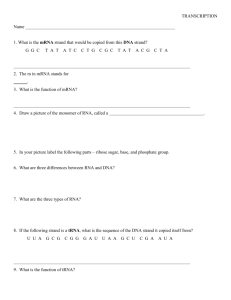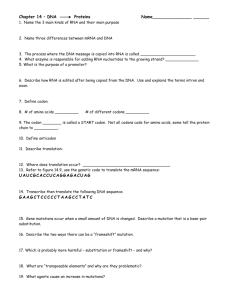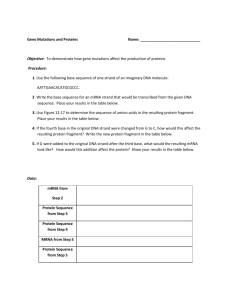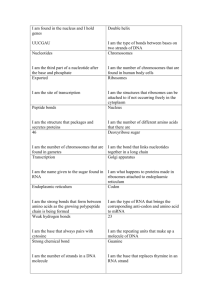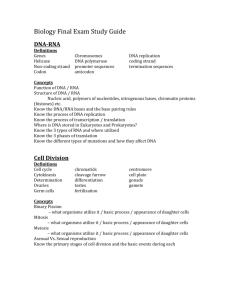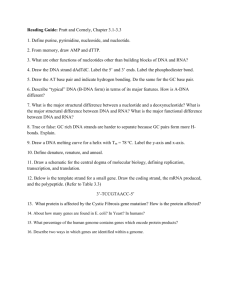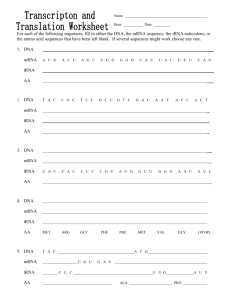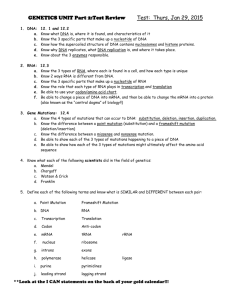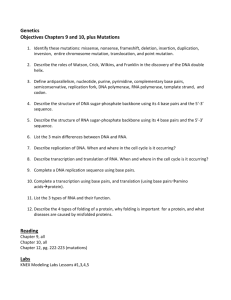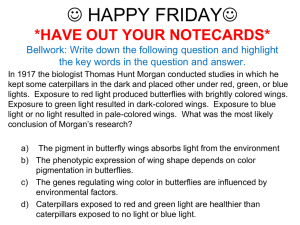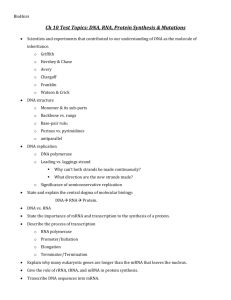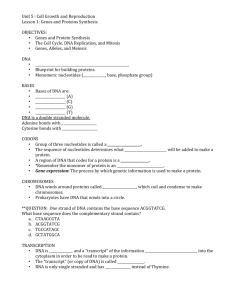Part A - Review Assignment
advertisement
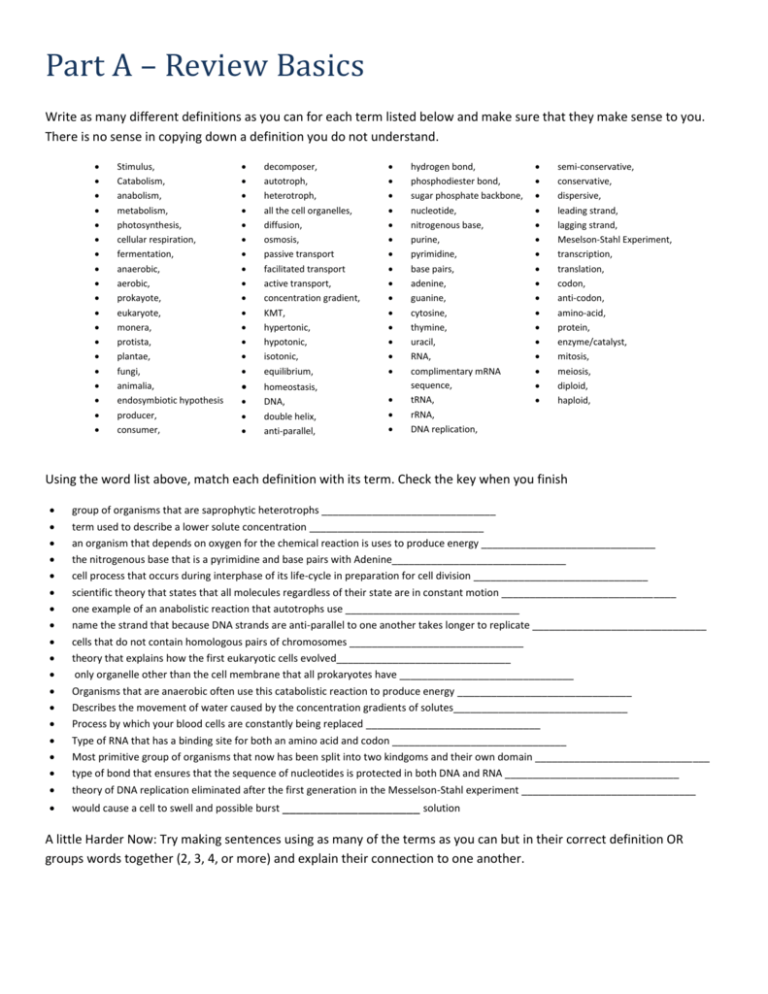
Part A – Review Basics Write as many different definitions as you can for each term listed below and make sure that they make sense to you. There is no sense in copying down a definition you do not understand. Stimulus, Catabolism, anabolism, metabolism, photosynthesis, cellular respiration, fermentation, anaerobic, aerobic, prokayote, eukaryote, monera, protista, plantae, fungi, animalia, endosymbiotic hypothesis producer, consumer, decomposer, autotroph, heterotroph, all the cell organelles, diffusion, osmosis, passive transport facilitated transport active transport, concentration gradient, KMT, hypertonic, hypotonic, isotonic, equilibrium, homeostasis, DNA, double helix, anti-parallel, hydrogen bond, phosphodiester bond, sugar phosphate backbone, nucleotide, nitrogenous base, purine, pyrimidine, base pairs, adenine, guanine, cytosine, thymine, uracil, RNA, complimentary mRNA sequence, tRNA, rRNA, DNA replication, semi-conservative, conservative, dispersive, leading strand, lagging strand, Meselson-Stahl Experiment, transcription, translation, codon, anti-codon, amino-acid, protein, enzyme/catalyst, mitosis, meiosis, diploid, haploid, Using the word list above, match each definition with its term. Check the key when you finish group of organisms that are saprophytic heterotrophs _______________________________ term used to describe a lower solute concentration _______________________________ an organism that depends on oxygen for the chemical reaction is uses to produce energy _______________________________ the nitrogenous base that is a pyrimidine and base pairs with Adenine_______________________________ cell process that occurs during interphase of its life-cycle in preparation for cell division _______________________________ scientific theory that states that all molecules regardless of their state are in constant motion _______________________________ one example of an anabolistic reaction that autotrophs use _______________________________ name the strand that because DNA strands are anti-parallel to one another takes longer to replicate _______________________________ cells that do not contain homologous pairs of chromosomes _______________________________ theory that explains how the first eukaryotic cells evolved_______________________________ only organelle other than the cell membrane that all prokaryotes have _______________________________ Organisms that are anaerobic often use this catabolistic reaction to produce energy _______________________________ Describes the movement of water caused by the concentration gradients of solutes_______________________________ Process by which your blood cells are constantly being replaced _______________________________ Type of RNA that has a binding site for both an amino acid and codon _______________________________ Most primitive group of organisms that now has been split into two kindgoms and their own domain _______________________________ type of bond that ensures that the sequence of nucleotides is protected in both DNA and RNA _______________________________ theory of DNA replication eliminated after the first generation in the Messelson-Stahl experiment _______________________________ would cause a cell to swell and possible burst ____________________ solution A little Harder Now: Try making sentences using as many of the terms as you can but in their correct definition OR groups words together (2, 3, 4, or more) and explain their connection to one another. Making Connections: 1. Why does equilibrium not necessarily mean homeostasis? 2. What are the two steps that ALL organisms need to satisfy in order for cells to have energy and which step so photosynthesis and cellular respiration fit into. 3. The 5 Kingdom system that we learned at the start of the year has since evolved into a 6 Kingdom system and then later into a 3 Domain system. What was the basis for each system and the reasons for the changes 4. There are 5 basic functions of all living organisms. List them. 5. Do you know your organelles? I suggest trying Quizlet or some other online quiz system. Set up an account for free and try a quiz or two to test yourself. 6. It is important that you understand the monomers and polymers of DNA, RNA, Proteins, Chromosomes. 7. Why does the mRNA sequence even exist if the DNA and tRNA sequences are identical other than the U replacing T? 8. DNA replication is very important why? And what does this process look like for Chromosomes 9. How is it that homologous pairs of chromosomes have the same genes but can have different alleles. 10. Can sister chromatids have different alleles? Explain 11. Make up the transcribed side of a DNA sequence that is code for 5 amino acids. Determine its correct mRNA, tRNA and amino acid sequences. 12. Show why a substitution mutation may not result in a protein mutation, but a deletion or insertion mutation will. Complete ALL = 2% Term 1 Bonus Answers are all posted in the website next to this package. Work copied will not be accepted for bonus.
